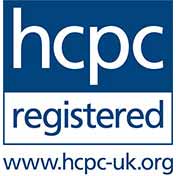Frequently Asked Questions
The primary focus of physiotherapy is the restoration of function. Physiotherapists assess and diagnose the problem, then plan and administer treatment programmes that aim to restore functional activity and minimise dysfunction after disease or injury. A combination of manual and exercise therapies will be used to achieve this. Advice on posture and ergonomics is always provided, aiming to prevent further injury or dysfunction. At one time or another we all suffer from pain in various parts of our bodies. These can be caused by accidents, sporting activities, surgery, wear and tear of daily life or could be the result of long standing problems. In particular our muscles, backs, necks, knees, hips, ankles, shoulders, elbows and hands can all be a source of discomfort which can limit our enjoyment of daily activities. Prompt physiotherapy treatment speeds recovery and allows a rapid return to normal activities from all these types of problems.
Physiotherapy can treat a wide variety of musculoskeletal conditions that cause us pain, to include:
- Back and neck problems
- Sports injuries
- Joint problems
- Muscle, ligament and tendon injuries
- Arthritis and rheumatism
- Post surgery
- Postural problems
- Work related injuries
- Whiplash and personal injury
Physiotherapy can also be directed towards dealing with problems associated with adult acquired neurological conditions such as:
- Stroke (CVA/TIA)
- Head Injury/Traumatic brain injury
- Multiple sclerosis (MS)
- Parkinson's disease
- Spiral cord injury
- Guillain Barre Syndrome
Find out more information regarding our Neurological Physiotherapy Service.
Physiotherapy can also play a vital role in the assessment and management of babies, children and young people with injury, movement disorders or disability. The aim of the physiotherapy is to help the child reach their full potential through specialist assessment, rehabilitation, with advice and support to families and teachers. Find out more information about our specialist Paediatric Service.
Yes. All physiotherapists should be both Chartered and State Registered in order to practice. This guarantees that their qualification is properly recognised, they are governed by a professional Code of Conduct and covered by professional liability insurance. At PEAK Physiotherapy Limited all of our physiotherapists are Chartered and State Registered. For more information we recommend the Chartered Society of Physiotherapy site.
You will first attend an initial assessment where the physiotherapist will take a detailed history of your condition together with any relevant past medical history. A physical assessment will then be undertaken to determine the clinical diagnosis of your problem. The physiotherapist will then work with you to develop an appropriate treatment plan. The aim of this unique programme will be to cater for your personal needs, maximize your rate of recovery and reduce the likelihood of a recurrence of the problem. The physiotherapist may suggest a number of follow up appointments to apply these treatments and will modify the treatment plan as your condition progresses. The initial assessment will last up to 45 minutes and subsequent treatment sessions will take 30 minutes. You may be expected to remove outer layers of clothing so that the problem can be fully assessed. Your dignity will be maintained at all times. Every opportunity will be given to you to ask questions about your condition and to seek advice regarding its management and prevention in the future.
Our aim at PEAK physiotherapy is to get you back to doing the things you enjoy, whatever these are, as soon as possible.
There is no predetermined number of treatments for a specific condition. However, following your initial assessment, your physiotherapist will discuss and agree a treatment plan with you. This may include advice regarding the approximate number of treatments you may require. Response to treatment varies between individuals.
PEAK Physiotherapy Limited is registered with all major private medical insurance companies. If you have medical insurance you may be able to claim back some or all of the costs of physiotherapy treatment so long as you follow the procedures set out by your insurer. The following are tips to help you:
- Contact your insurance company and check that you are covered for physiotherapy treatment of the condition you have and how many treatment sessions are available under your cover.
- Obtain the required claim forms and/or authorisation codes from your insurer.
- Ask your insurer if you need a GP referral. If so make and attend an appointment with your GP. Describe your condition to them and ask them to write you a letter of referral for physiotherapy treatment.
- Make sure your physiotherapist is aware of your insurance and is given any authorisation codes associated with your claim.
- In most cases PEAK Physiotherapy Limited will bill your insurer directly following your programme of treatments.
- Find out if you have an excess on your policy that you are liable for – this is important as you may need to pay a certain amount as part of your policy agreement, before your insurance will start to cover your remaining physiotherapy sessions.
- Please note that certain insurance companies will only part cover the cost of your physiotherapy session. You may therefore be required to pay a small amount to cover the shortfall per session. This may be in addition to the excess arrangement you have with your insurance company on your policy.
- You will be required to read and sign our standard Terms and Conditions Form at your first physiotherapy appointment – this is to make you aware of your responsibilities when using your insurance to cover your physiotherapy, and to inform you about our company procedures when dealing with insurance.
Contact details for major UK private medical insurers:
| Aviva | 01603 622200 |
|---|---|
| AXA PPP Healthcare | 0800 454080 |
| BUPA | 0845 6090111 |
| CIGNA | 01475 492222 |
| First Assist Group Ltd | 01455 251155 |
| Medisure | 0870 3331174 |
| Vitality | 0345 602 3523 |
| Remedi | 0207 3842929 |
| Simplyhealth | 0800 2947302 |
| Sovereign Healthcare | 01274 841130 |
| Standard Life | 0845 2798877 |
| WPA | 0800 298 9588 |
Not if you are paying for treatment yourself. However, if your private health insurance covers you for treatment you may need a referral from your GP. Please check details with your insurance company.
No. However, with your permission, we will contact your GP to keep them informed regarding your condition.
If you have a back or leg problem, you may want to bring your own shorts to change into for the physiotherapist to assess you. For running-related injuries, it would be advisable to bring along your current running shoes.












